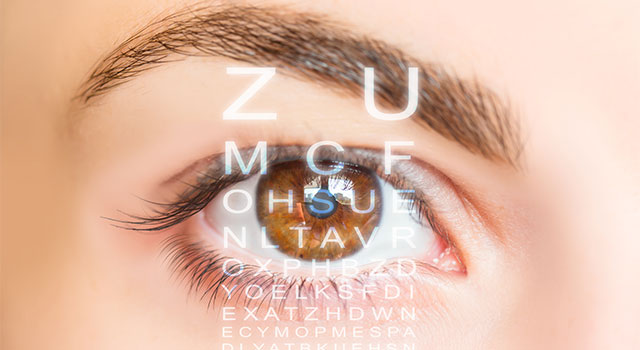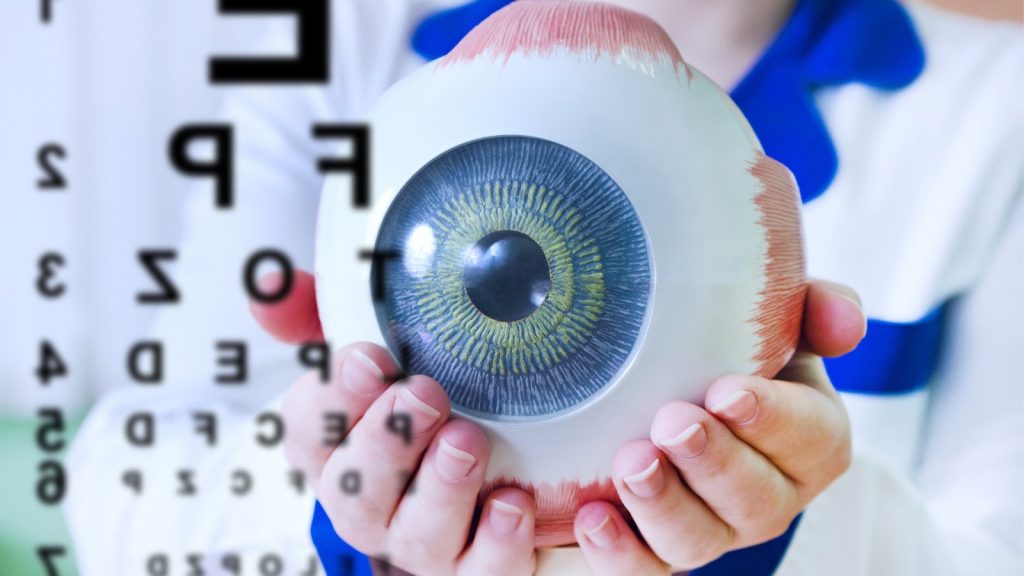Recognizing the Numerous Eye Conditions Dealt With by Specialized Eye Care Professionals
In the world of eye care, specialized professionals play a critical role in diagnosing and dealing with a wide selection of eye conditions. As we begin on this expedition of the various eye conditions attended to by specialized eye treatment specialists, it becomes apparent that the complex internet of ocular health holds a myriad of interesting insights waiting to be discovered.
Common Refractive Errors
Refractive mistakes are usual aesthetic conditions triggered by an imperfection in the eye's capability to properly concentrate light, leading to obscured vision. One of the most common kinds of refractive mistakes consist of nearsightedness (nearsightedness), hyperopia (farsightedness), astigmatism, and presbyopia. Nearsightedness happens when the eyeball is as well lengthy or the cornea is as well rounded, causing far-off items to show up fuzzy. Hyperopia, on the various other hand, takes place when the eyeball is also brief or the cornea is also level, causing neighboring items being out of focus. Astigmatism is defined by an irregularly designed cornea, causing altered or blurred vision whatsoever ranges. Presbyopia is an age-related problem where the lens sheds its adaptability, making it tough to concentrate on close items.
These refractive mistakes can be remedied with various methods, consisting of eyeglasses, call lenses, or refractive surgery. Eye treatment professionals play a critical role in diagnosing and managing refractive errors to assist people attain more clear vision and improve their lifestyle.
Age-Related Eye Conditions
As individuals age, their eyes may be prone to a range of problems beyond refractive mistakes that can influence their vision and overall ocular health and wellness. Age-related eye conditions prevail and can considerably impact the quality of life for older adults. Among one of the most prevalent age-related eye conditions is age-related macular deterioration (AMD), an illness that creates central vision loss and can make activities like analysis and driving tough. refractive surgeries in al. Cataracts, another typical problem among older individuals, cause clouding of the eye's natural lens, leading to blurred vision. Glaucoma, defined by damages to the optic nerve, is also much more common with age and can cause field of vision loss or loss of sight if left unattended. Additionally, presbyopia, a condition where the eye's lens loses versatility, is an all-natural component of aging and brings about this hyperlink difficulty concentrating on close objects. Regular eye examinations with specialized eye treatment specialists are crucial for early detection and management of these age-related eye conditions to protect vision and preserve ocular wellness as people expand older.
Vision-Threatening Illness
Vision-threatening illness encompass a series of serious ocular conditions that have the potential to significantly influence a person's sight and overall visual function. These conditions present a danger of permanent vision loss otherwise immediately identified and dealt with by specialized eye care professionals. Some usual vision-threatening conditions consist of glaucoma, diabetic retinopathy, age-related macular deterioration (AMD), and retinal detachment.
Glaucoma is a group of eye problems that damage the optic nerve, often due to high intraocular stress, leading to peripheral vision loss and possible loss of sight if left neglected. AMD is a modern condition influencing the macula, leading to central vision loss.
Very early detection, normal eye examinations, and prompt intervention are crucial in taking care of vision-threatening illness to maintain vision and maintain lifestyle. Specialized eye care experts play an essential function in diagnosing, dealing with, and taking care of these conditions to stop permanent vision loss.

Corneal Disorders
Corneal conditions include a range of problems that affect the transparent front component of the eye, understood as the cornea. Treatment for corneal conditions differs depending on the specific condition however may include drugs, get in touch with lenses, or in extreme instances, corneal transplants. Normal eye examinations are necessary for very early discovery and monitoring of corneal problems to preserve vision and eye her response health.
Neurological Eye Conditions
Neurological eye conditions involve disorders that impact the link between the eyes and the mind, influencing aesthetic processing and overall eye feature. These conditions can manifest in various means, influencing vision, eye activities, and also the sychronisation between the eyes. One usual neurological eye condition is optic neuritis, characterized by swelling of the optic nerve resulting in vision loss, color desaturation, and pain with eye movement.
One more considerable problem is nystagmus, where the eyes make repeated, unrestrained motions, impacting visual skill and depth perception. Furthermore, problems like amblyopia, commonly described as "lazy eye," arise from uncommon aesthetic growth in early childhood years, bring about lowered vision in one eye.
Neurological eye conditions call for customized treatment from specialists like neuro-ophthalmologists that have knowledge in both neurology and ophthalmology. Medical diagnosis commonly includes a detailed eye exam, imaging researches, and cooperation with neurologists to attend to the underlying neurological problems influencing the aesthetic system. Therapy techniques can include medication, vision treatment, or in severe instances, surgical interventions to take care of these complex conditions successfully.

Verdict
Finally, specialized eye treatment professionals treat a variety of eye problems, consisting of usual refractive mistakes, age-related eye problems, vision-threatening diseases, corneal conditions, and neurological eye conditions - refractive surgeries in al. By comprehending these numerous problems and looking for ideal therapy from eye care specialists, people can preserve optimal eye wellness and vision. It click is essential to prioritize regular eye exams and comply with advised therapy plans to protect and safeguard one's vision for the future